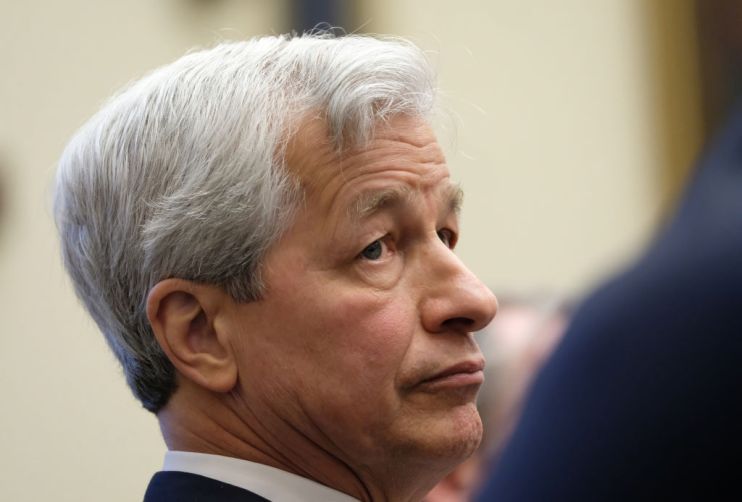JP Morgan CEO Jamie Dimon: London must reinvent itself as EU rivals fight to take its crown

London will need to “adapt and reinvent itself” for the “business of tomorrow” to ensure it remains a global financial centre after Brexit, JP Morgan chief executive Jamie Dimon warned today.
Dimon said London remained a “magnificent place” to do business but warned that changing financial regulations post Brexit meant that “many years out” it may make sense to move all European-focussed functions out of the capital and onto the continent.
The Wall Street banking boss said financial centre rivals such as Amsterdam, Frankfurt, Paris and Dublin will eventually take a larger share of operations previously performed in London for all of Europe and this post-Brexit fragmentation will mean “few winners are likely to emerge” and costs for clients will rise.
A deal between the UK and the European Union is still yet to be finalised.
Dimon predicted that the ongoing impact of Brexit on financial services, regardless of what deal is struck, will hurt the UK’s economy in the years ahead.
“Brexit was accomplished, but many issues still need to be negotiated. And in those negotiations, Europe has had, and will continue to have, the upper hand, ” he said.
Despite the Brexit disruption, Dimon’s letter to JP Morgan shareholders pointed to how London could maintain its place as the financial centre of Europe.
“London still has the opportunity to adapt and reinvent itself, particularly as the digital landscape
continues to revolutionize financial services. Innovation is key to preparing for doing the business of tomorrow versus relying on the shifting ways of the past”.
Although Dimon notes that the bank will likely move more European client servicing from London to the UK as financial regulations change on the continent post-Brexit, the bank has remained committed to the UK as well.
JP Morgan will launch its Chase digital bank later this year, a move that’s led to around 400 new roles in London and Edinburgh.
Dimon is the latest banking veteran to encourage London to adapt post-Brexit and his suggestions backing financial technology innovation follow the government’s Kalifa review into fintech.
Among the recommendations to supercharge London’s fintech economy are a vamped up sandbox, a new £1bn growth fund and establishing a tech visa, so that rivals beyond Europe – namely Canada, Singapore and Australia – don’t lure skilled fintech businesses away fromt eh capital.
To encourage more fintechs to IPO in London Kalifa also called for free float requirements on the stock exchange’s Premium segment to be reduced from 25 per cent to 10 per cent for a limited time post-IPO. He has called for the relaxation of pre-emption rules to be maintained at 20 per cent following the Pre-Emption Group’s recommendations last April.
Seperately, Dimon’s letter to JP Morgan shareholders also shared his view on the US and its economic recovery fromt he Covid-19 pandemic.
Dimon said the US could be in store for an economic boom through to 2023 if more adults get vaccinated and federal spending continues.
“I have little doubt that with excess savings, new stimulus savings, huge deficit spending, more QE (quantitative easing), a new potential infrastructure bill, a successful vaccine and euphoria around the end of the pandemic, the U.S. economy will likely boom,” Dimon wrote in his annual letter to shareholders published on the bank’s website.
“This boom could easily run into 2023 because all the spending could extend well into 2023.”
As head of the biggest US bank, Dimon is widely seen as the face of America’s banking sector, and he used the letter to share his views on the country’s economic health and to press for policies to help address inequality.
The average US consumer’s finances are in “excellent shape,” Dimon said, and the stock market’s high valuations are justified.